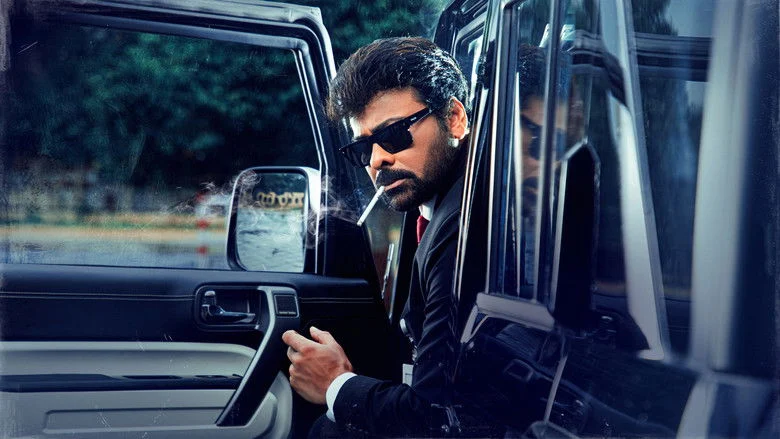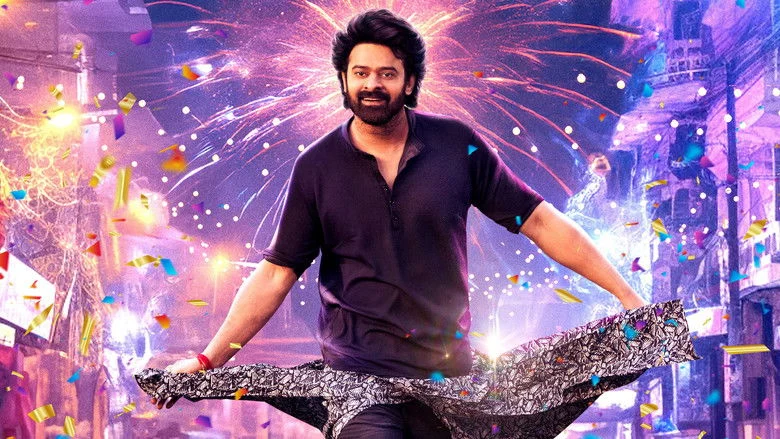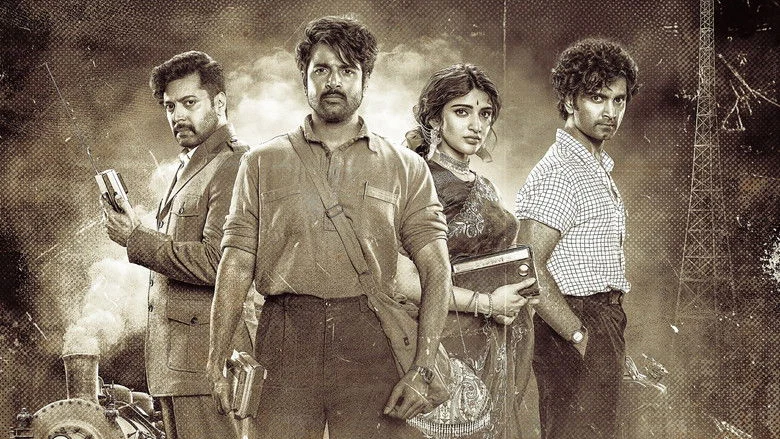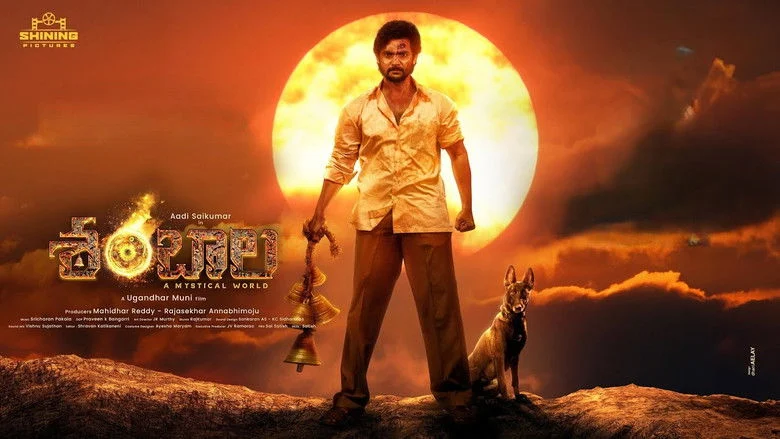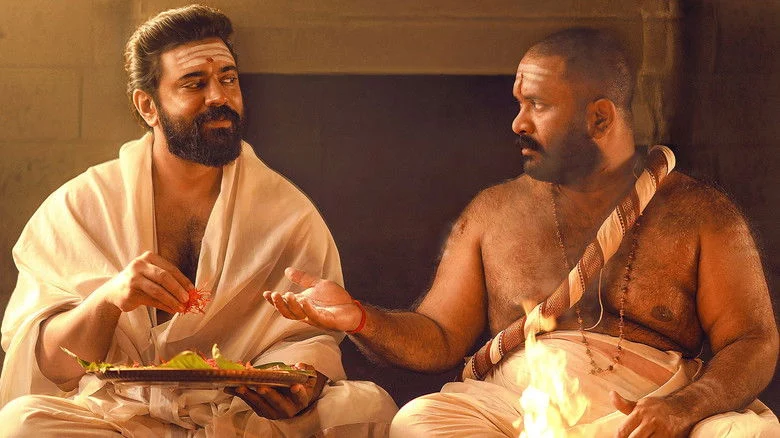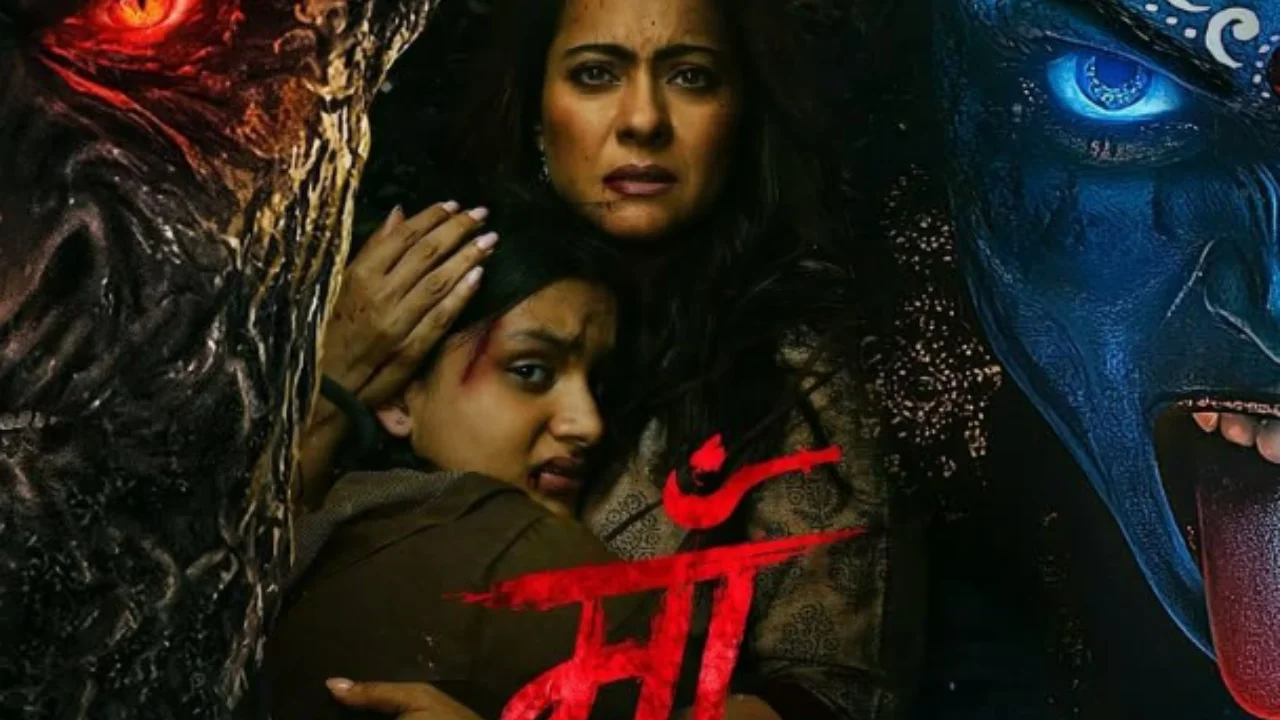
Maa (2025) Movie: Why Kajol’s Maa Still Matters for Indian Horror Cinema
Maa marks Kajol’s bold entry into the horror genre, bringing together the legendary actress with director Vishal Furia’s vision of mythological terror. This supernatural thriller represents a significant addition to producer Ajay Devgn’s expanding horror universe. The film features an impressive cast including Kajol in the lead role, supported by seasoned actors Ronit, Indraneil, and newcomer Kherin.
Directed by Vishal Furia, known for his work on the Chhorii series, Maa attempts to blend ancient Indian mythology with modern horror storytelling. The screenplay draws inspiration from the legendary tale of Goddess Kali and the demon Raktabeej.
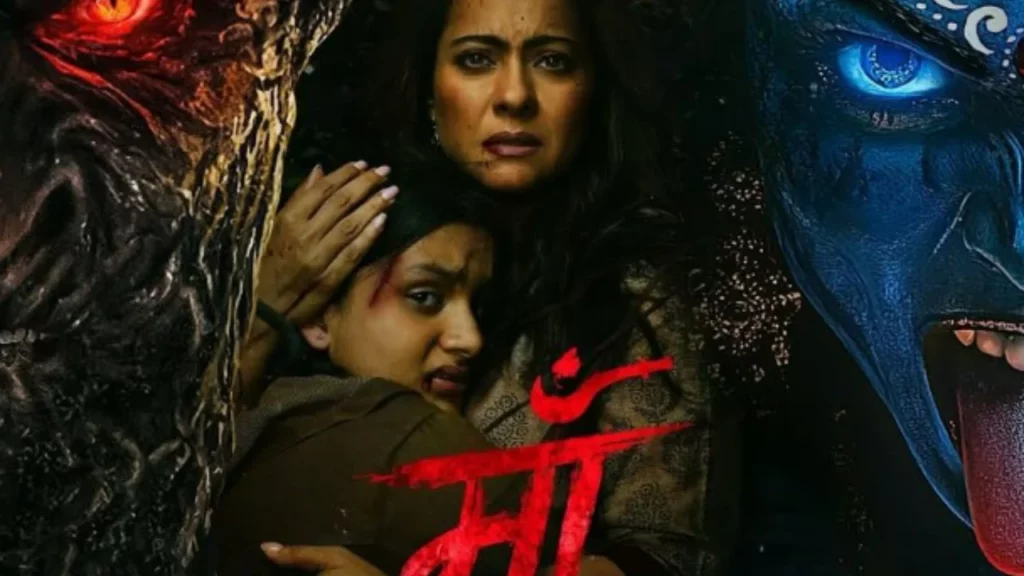
Story and Plot
The story centers around Ambika (Kajol), a devoted mother living peacefully in Kolkata with her husband Shuvankar and teenage daughter Shweta. Their calm life shatters when they visit Shuvankar’s ancestral village following his father’s death.
The family has avoided this village for years, hiding dark secrets about their bloodline. When Shuvankar mysteriously dies, Ambika and Shweta become vulnerable to ancient evil that has haunted their family for generations.
The film introduces Amsaja, a tree-dwelling demon born from Raktabeej’s blood, who targets young girls from specific bloodlines. When Shweta becomes the demon’s next target, Ambika must transform from protective mother to fierce warrior.
Cast Performance
Kajol delivers what many consider her most powerful performance in recent years. She completely immerses herself in the role of a mother driven to extraordinary lengths. Her portrayal captures emotions from vulnerability to fierce determination, with her expressive eyes conveying maternal anguish and resilience.
I found her transformation from concerned mother to Kali-powered warrior genuinely compelling. The physical demands of the role are evident in her committed performance, and she handles both emotional and action sequences with equal skill.
Kherin Sharma, making her debut as Shweta, provides a natural portrayal of a curious teenager. Her chemistry with Kajol feels authentic, creating a believable mother-daughter bond that anchors the film’s emotional core.
Ronit Roy emerges as a standout performer as Joydev, the village head harboring secrets. His nuanced performance adds layers to what could have been a straightforward supporting role.
Direction and Technical Aspects
Vishal Furia’s direction shows both strengths and weaknesses. His ability to create atmospheric tension, particularly in village sequences, demonstrates his genre understanding. The visual contrast between modern city life and the mysterious village enhances the supernatural elements.
However, the VFX work presents mixed results. While some sequences successfully create supernatural terror, others suffer from budget constraints that make effects appear unconvincing. The demon’s manifestation and climactic battle sequences struggle with visual quality consistency.
The sound design contributes significantly to the film’s eerie atmosphere. Audio elements effectively build tension during crucial sequences, though the musical compositions remain largely forgettable.
What I Liked
The film’s greatest strength is Kajol’s powerhouse performance, which elevates weaker narrative moments. Her emotional commitment creates genuine investment in the character’s journey, making the maternal protection theme resonate strongly.
The mythological foundation provides a unique angle in the horror genre. I appreciated how the film attempts to differentiate itself from typical supernatural thrillers through its cultural roots.
The first half’s atmospheric building and exploration of generational trauma through the family’s ancient curse connection shows promise. The film succeeds in creating moments of genuine tension.
What Could Be Better
The screenplay suffers from significant pacing issues, particularly in the first half where meaningful plot development takes too long. I found myself waiting for the story to gain momentum for almost an hour.
The VFX quality varies dramatically throughout the film. Some sequences appear amateurish and detract from the horror experience. The climactic battle feels over-the-top and loses emotional impact due to technical limitations.
Character development beyond the central mother-daughter relationship remains superficial. Supporting characters serve plot functions rather than feeling like complete individuals.
Critics and Audience Reception
The film received early reviews with 3.5-star ratings, with critics calling it a thrilling and well-made horror drama entertainer. Bollywood Hungama awarded it 3.0/5, noting it as a one-of-a-kind mythological-horror film while criticizing tacky VFX and inconsistent writing.
Koimoi highlighted mixed reactions, praising Kajol’s performance but expressing reservations about direction and narrative coherence. Critics consistently praised lead performances while questioning technical execution.
Public reception shows enthusiasm for Kajol’s return to horror, with many appreciating the mythological angle. However, discussions around certain cultural themes have sparked debate, indicating polarized audience response.
The film earned approximately ₹2.86 crores on its opening day, suggesting cautious audience response despite the star power.
Final Thoughts
Maa represents an ambitious attempt to blend mythological storytelling with contemporary horror, anchored by Kajol’s exceptional performance. While the film creates atmospheric tension and explores unique cultural themes, it struggles with technical execution and narrative consistency.
I believe the movie works best as a showcase for Kajol’s dramatic abilities and as exploration of maternal strength against supernatural adversity. However, pacing issues, inconsistent VFX, and underdeveloped characters limit its impact as a cohesive horror experience.
For Kajol fans and those interested in mythological horror, the film offers compelling moments that justify viewing. Despite its flaws, Maa contributes something unique to Indian horror through its mythological foundation and powerful central performance.
Rating: 3/5



